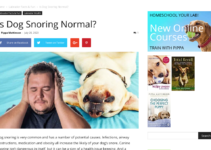Snoring is a common occurrence during sleep, but it can also be a symptom of a more serious condition called Obstructive Sleep Apnea Syndrome (OSAS) or sleep apnea for short. Sleep apnea is a potentially dangerous sleep disorder where a person's breathing repeatedly stops and starts during sleep. Health experts emphasize that sleep apnea requires treatment due to its potential risks and consequences.
Chronic snoring can have significant consequences on a person's health. In some cases, snoring may be a result of an underlying medical condition, and individuals who experience this may be able to claim benefits. Sleep apnea, characterized by the intermittent cessation and resumption of breathing during sleep, is a potentially serious sleep disorder that falls under this category.
Diagnosing Obstructive Sleep Apnea involves several steps and assessments, including a comprehensive evaluation of the patient's medical history, physical examination, and sleep studies. Through these diagnostic methods, healthcare professionals can accurately determine the presence and severity of sleep apnea in an individual.
The pathophysiology of Obstructive Sleep Apnea involves the relaxation and collapse of the upper airway during sleep, leading to partial or complete obstruction of the air passages. This obstruction causes breathing pauses, reduced oxygen levels in the blood, and disrupted sleep patterns.[0] The consequences of untreated sleep apnea can be severe and include an increased risk of cardiovascular disease, hypertension, heart attack, stroke, and premature death.
Various factors can contribute to the development of Obstructive Sleep Apnea. These factors include obesity, advancing age, and lifestyle choices such as smoking and excessive alcohol consumption. Making lifestyle changes, such as quitting smoking, losing weight, and avoiding alcohol, can help reduce the severity of sleep apnea and alleviate symptoms.
In addition to lifestyle changes, dietary modifications can also play a role in reducing snoring and preventing sleep apnea. Avoiding dairy and wheat-based products, as well as refraining from consuming large, processed meals before bedtime, can significantly improve sleep quality and reduce snoring. Instead, incorporating anti-inflammatory foods such as vegetables, fruits, salmon, nuts, avocados, and olive oil into the diet is recommended to prevent snoring and improve overall health.[1]
It is essential to recognize the symptoms related to sleep apnea. These symptoms can include loud snoring, gasping, snorting, or choking noises while sleeping, frequent awakenings during the night, and breathing pauses and restarts during sleep.[2] If these symptoms persist, it is crucial to seek medical attention for a proper diagnosis and treatment.
Furthermore, the impact of snoring and sleep apnea on an individual's daily life can be profound. Excessive daytime sleepiness is a common consequence of sleep apnea and can significantly impact a person's productivity, mood, and overall quality of life. It is crucial to address the underlying sleep disorder to alleviate these symptoms and improve overall well-being.
In severe cases of sleep apnea, medical interventions may be necessary. Halo Laser Treatment is one such option that can be used to address the condition.[3] Before and after care for this treatment is essential to ensure optimal results. Pulse Light Clinic offers Halo Laser Treatment for sleep apnea, providing a comprehensive and specialized approach to managing the condition.
In addition to medical interventions, there are various anti-snoring devices available in the market. These devices, such as nasal strips or dilators, help prevent nasal snoring by keeping the nostrils open during sleep.[2] They can be an effective solution for individuals who experience snoring due to nasal congestion or narrowing.
In conclusion, snoring can be more than just a nuisance during sleep. It can be a symptom of a serious condition called Obstructive Sleep Apnea Syndrome or sleep apnea. It is important to recognize the potential risks and consequences of sleep apnea and seek proper diagnosis and treatment. Lifestyle changes, including dietary modifications and weight management, can play a significant role in reducing snoring and preventing sleep apnea. Additionally, medical interventions and the use of anti-snoring devices can provide further support in managing the condition. Overall, addressing snoring and sleep apnea can lead to improved sleep quality, better health outcomes, and enhanced overall well-being.
0. “DWP: Snorers could get £172 weekly in PIP payments – Somerset Live” www.somersetlive.co.uk, 15 Sep. 2023, https://www.somersetlive.co.uk/news/cost-of-living/dwp-snorers-could-172-weekly-8695201
1. “Avoiding six foods can help you stop snoring, experts say …” www.nottinghampost.com, 15 Sep. 2023, https://www.nottinghampost.com/news/health/avoiding-six-foods-can-help-8685162
2. “Lifestyle – How to reduce snoring by changing your diet – 7eNEWS” 7enews.net, 15 Sep. 2023, https://7enews.net/en/lifestyle-en/how-to-reduce-snoring-by-changing-your-diet/
3. “Halo Laser Before and After | Pulse Light Clinic London” www.pulselightclinic.co.uk, 15 Sep. 2023, https://www.pulselightclinic.co.uk/skin-treatments/halo-laser-before-and-after





